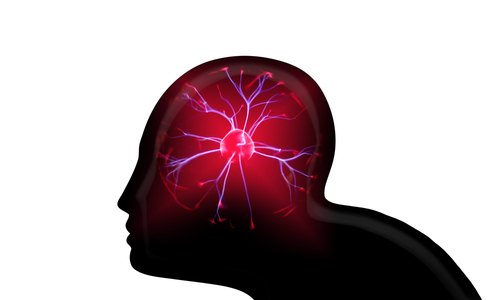Deep Brain Stimulation Seen to Ease Tremors in Patients with Early-stage Disease in Pilot Study
Written by |

Deep brain stimulation (DBS) was seen to slow the progression of “rest tremors” in patients with early-stage Parkinson’s disease, a pilot study reports.
The study, “Effects of deep brain stimulation on rest tremor progression in early stage Parkinson disease,” was published in Neurology.
“The finding around tremor is truly exceptional,” David Charles, MD, professor and vice-chair of neurology at Vanderbilt University, in Tennessee, and the study’s senior author, said in a university news article. “Why it is so remarkable is because there are no treatments for Parkinson’s that have been proven to slow the progression of any element of the disease.”
Vanderbilt has been approved to conduct a large-scale, Phase 3 clinical trial looking at the effectiveness of deep brain stimulation in early-stage patients by the U.S. Food and Drug Administration based on this pilot study. It plans to start enrolling about 280 such patients when it opens next year.
This study’s findings point to DBS easing tremors associated with periods of rest — tremors very common in Parkinson’s patients and particularly distressing at early disease stages — but was too small to measure effectiveness or benefit with any significance.
Discuss the latest research in the Parkinson’s News Today forum!
DBS is commonly used to treat patients with advanced Parkinson’s who no longer respond to available medications and are unable to adequately manage their symptoms. The FDA also recently expanded use of DBS — which requires surgery to implant a device to stimulate targeted regions of the brain — to patients with mid-stage disease who also respond poorly to standard medications.
The pilot trial (NCT00282152), which took place at Vanderbilt’s medical center, looked at whether DBS might be safe and tolerable for early-stage patients. It included 28 people, ages 50 to 75, who had been taking Parkinson’s medications for at least six months and up to four years. They had no history of dyskinesia (uncontrolled movement) and stable motor symptoms.
Patients were randomized to receive DBS plus Parkinson’s medication, or medication alone. At baseline (study start) and 6, 12, 18, and 24 months, all agreed to stop all Parkinson’s therapy for one week (medication and/or stimulation). This allowed researchers to evaluate symptom changes and progression.
Results found that patients on medication alone were seven times more likely to again develop rest tremor two years post-treatment, compared to those patients given both DBS and standard therapy.
Analysis also revealed that 86% of the medication-only group developed new motor symptoms in limbs that were initially unaffected. This occurred in 46% of patients in the DBS treatment group.
Seven DBS-treated patients did not develop rest tremors in previously unaffected limbs, and four of these patients showed a lack of tremors in an initially affected limb at the study’s.
“The field of DBS therapy for Parkinson’s disease is moving toward earlier stages of treatment,” Charles said. The planned Phase 3 study will both “ensure patient safety and provide the Parkinson’s community with the best possible medical evidence to guide treatment.”
This large-scale trial — expected to begin in 2019 — will likely take place at Vanderbilt’s Nashville campus and at other 17 medical centers across the United States, according to the article.





